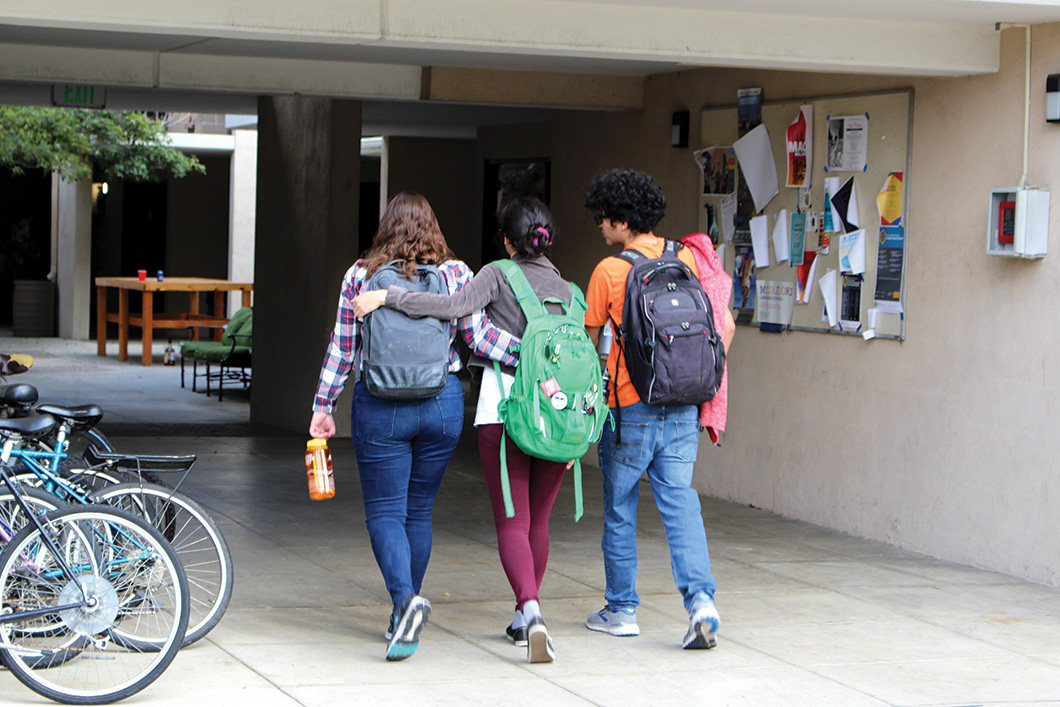College News
The HMC Response to COVID-19
Federal and state orders and mandates related to the spread of COVID-19 required immediate action to ensure the safety of HMC community members. At press time, the state of California’s Stay at Home order was still in effect. Yet while the campus may seem desolate—save for a few staff and students—the engine driving the College’s continued operation is being run by HMC community members from homes in Claremont and throughout the region. They are figuring out how to teach and support students, re-imagine a commencement ceremony for the Class of 2020, determine student refunds and employee payroll, and celebrate alumni reunion classes, among many significant tasks. The cancellation of events and the transition to online-only courses for the second half of spring semester is life-altering, but at every turn, HMC community members have demonstrated unity and support for each other.

Students
Students began preparing to leave campus after the March 11 announcement. By late-March, just 53 students were housed in the campus residence halls. In an article in the March 2020 Muddraker, Michelle Lum ’23 writes, “So, two months too early, shedding tears and giving each other tight hugs, students began packing up for the semester. But despite the difficulties they faced, Mudders came together as
a community in the fight against coronavirus— helping each other pack, giving each other rides home, and offering places to stay to students with nowhere to go—showing that solidarity, as well as the best of humanity, can emerge even in the darkest of times.”
Faculty
An extra week after spring break helped faculty members transition to online delivery of all spring semester courses. Faculty members shared strategies and attended virtual workshops as they prepared for an unprecedented online-only semester.
During spring break, mathematics professor Susan Martonosi described her plan for spring classes: “In the class where I’m the sole instructor, I plan to record videos using Google Meet (screen-sharing my lecture notes using Microsoft OneNote on my tablet PC) and post them for students to watch asynchronously. I’m trying to post them in 15-ish-minute increments so the file sizes are smaller, which helps address equity concerns for students who are in different time zones, have limited internet connection, have household responsibilities, etc. And it is a more robust plan
in case I or anybody in my family gets sick and I’m unable to maintain a consistent class schedule. Also in the spirit of robustness, I’m posting all remaining homework assignments in advance and a complete set of old lecture notes. I’ve introduced Piazza (an online discussion board add-in for Sakai) so that if students have questions on the homework, the graders, I, or even other students can respond and the entire class can benefit. This will promote asynchronous learning for those who can’t attend my live office hours.”
Karl Haushalter’s Biochemistry course meets twice per week via Zoom, with the sessions recorded for later viewing by students who are not able to attend. He says, “A highlight of the online class sessions is the use of virtual breakout rooms to provide opportunities for small groups of students to connect and work together on the material. To help keep everyone’s spirits up during these challenging times, we include fun activities like ‘Wear HMC Apparel to Class Day’ and ‘Bring your Pet with You to Class Day.’”
Staff
Resources and tips provided by human resources, computing and information services and The Claremont Colleges Services helped ease staff members’ transition to remote working. A small number of staff in the Division of Student Affairs, Facilities and Maintenance and Dining Services remain on campus to support the few remaining students.
In addition to connecting with all seniors about their post-graduate plans and checking with alumni about the status of jobs and internships, the Office of Career Services became virtual so students could continue to explore opportunities and get guidance without coming to campus. Director Sarah Park says, “It’s pretty amazing to see our Mudd community come together in good times as well as challenging times like this.”
Addressing issues around health, safety and communication, and helping students get situated were among the priorities for Marco Antonio Valenzuela, associate dean of students and director of residential life. In addition to finding ways for students remaining on campus to feel safe and supported, he and his staff are communicating with students about emergency protocols, meal service, what to do if they feel sick, and what it means to adhere to the statewide stay-at-home directive. While the move-out process was difficult for all concerned, Valenzuela said he was encouraged to see how the Mudd community came together. “We had faculty and staff step in and help DSA and facilities and maintenance staff with the move-out process. It was great to see this type of support during this high-stress situation.”